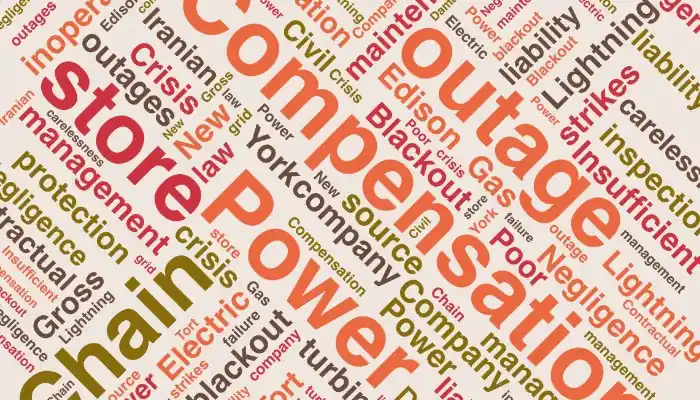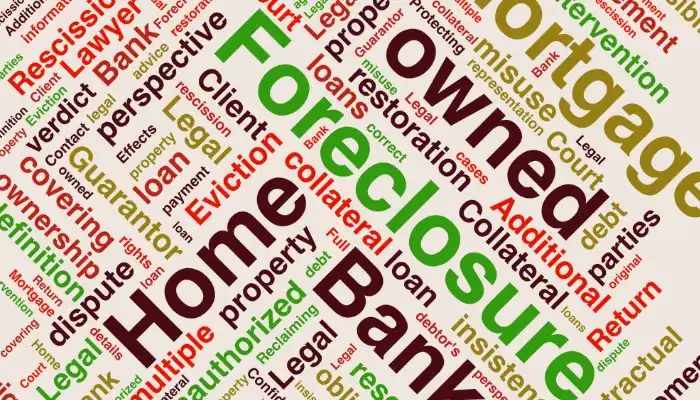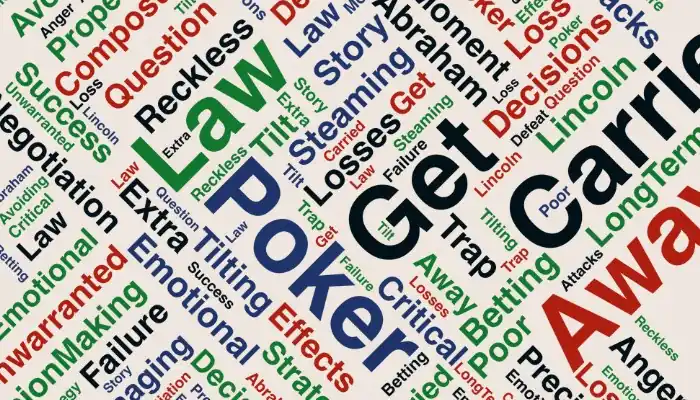Imagine it’s a dark night, the city’s busy power grid has failed due to a severe storm, and the city is plunged into prolonged total darkness. What happens to a large grocery store during this time? How much food goes bad? What kind of business losses does the store incur?
In 1977, following two lightning strikes within 18 minutes, a massive blackout occurred in New York, and the power to a chain store was cut off for 25 hours. The store owner decided to sue Edison Company, which was responsible for the power supply. He believed that several shortcomings in the company’s crisis management had caused this situation.
The plaintiff claimed that several negligent acts by Edison Company had led to the blackout. He presented and proved several conditions under the control of the electric company that were effective in the final power outage. These included:
Unwarranted Power Source Outages: It was claimed that several power sources had failed without justifiable reason on the night of the blackout, including the Hudson-Farragut transmission line and the Indian Point 2 power plant.
Inoperability of Gas Turbines: It appeared that the gas turbines, which were maintained for use during peak hours, were inoperable at the time of the blackout because the technicians had been sent home.
Insufficient Maintenance and Inspection: The electric company had failed to properly maintain and inspect some of the relays and circuit components.
Inadequate Protection Against Lightning: It was claimed that the electric company had not taken sufficient measures to protect the towers and transmission lines against lightning.
Poor Crisis Management: The system manager on the night of the blackout did not respond appropriately to the crisis, and the electric company was responsible for appointing someone who lacked the experience, knowledge, and expertise necessary to fully perform their duties in this critical situation.
The story continued and the court presented the matter to the jury to decide on the electric company’s liability. Ultimately, the jury concluded that the actions of the electric company constituted “gross negligence” and that compensation should be paid to the store owner. The court ordered Edison Company to pay $40,000 to the chain store. This verdict was also upheld by the appellate court.
In this case, the main issue is whether the electric company should be held responsible for the damages incurred by the chain store. Two types of liability can be considered for examining this issue:
1. Contractual Liability:
- If there exists a contract between the store and the electric company stipulating that the company must always provide electricity, then in the event of a power outage and damage to the store, the electric company must compensate for the damages. However, in this case, the discussion mostly centers around the electric company’s failure in crisis management and fulfilling its duties, not that there was a contract between them.
2. Tort Liability:
- In this type of liability, even if there is no contract, if the electric company causes a power outage and damage to the store due to negligence or carelessness, it must still compensate for the damages. In this case, the court concluded that the electric company had not properly fulfilled its duties and therefore must compensate for the losses incurred by the store.
What we read narrates a true event from a distant country. But let’s see how the situation would unfold if this happened in Iran?
If such an incident were to occur in Iran, there are two similar cases in the law:
1. Contractual Liability:
- If there is a contract between the store and the electric company, and the electric company fails to fulfill its commitments, under Iranian law, the electric company must compensate for the damages, unless it can prove that the cause of the power outage was beyond its control.
2. Tort Liability:
- Even if there is no contract, if the electric company causes damage to the store due to negligence or carelessness, according to Iranian civil liability law, the electric company must compensate for the damages.
Therefore, whether in America or in Iran, if the electric company cannot demonstrate that the power outage was due to factors beyond its control, or if its negligence is proven, it must compensate for the damages incurred by the store.
Source: Food Pageant v. Con Edison, 58 N.Y.2d 108 (Court of Appeals of New York 1981)




